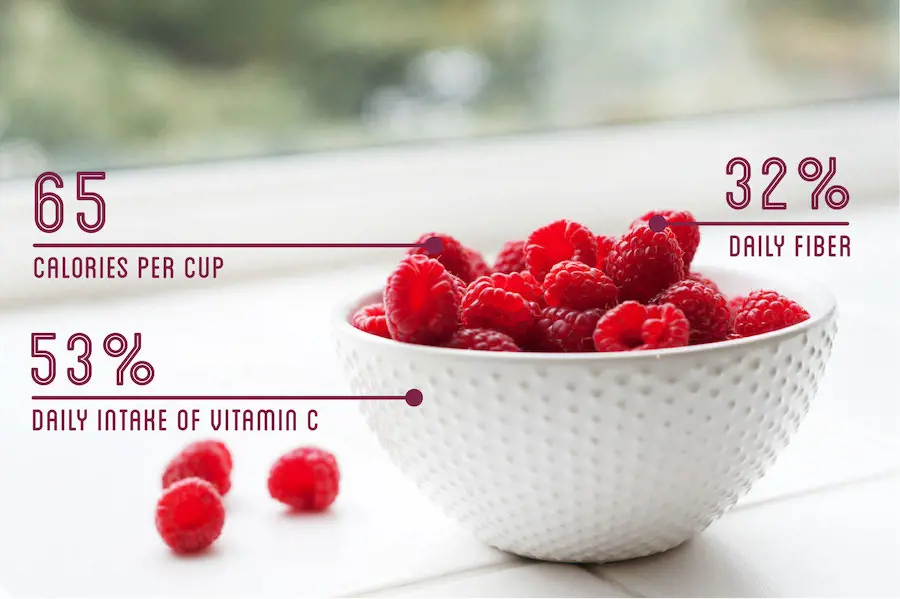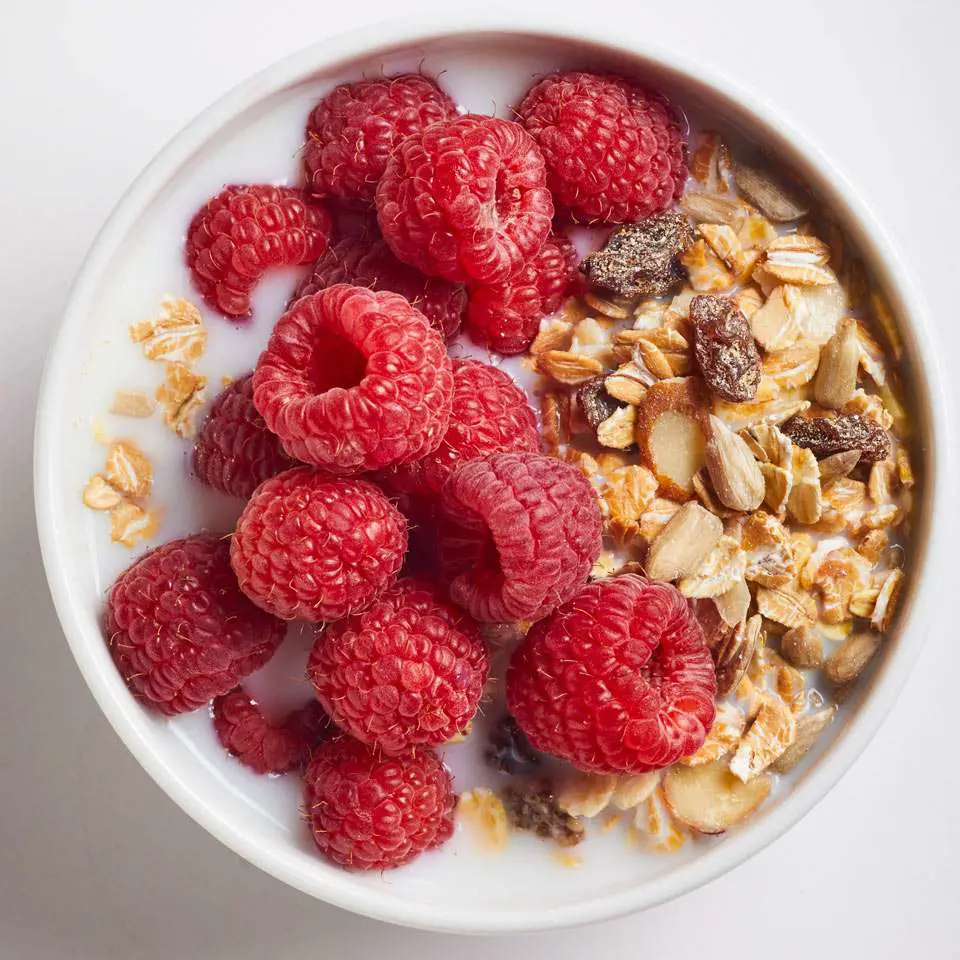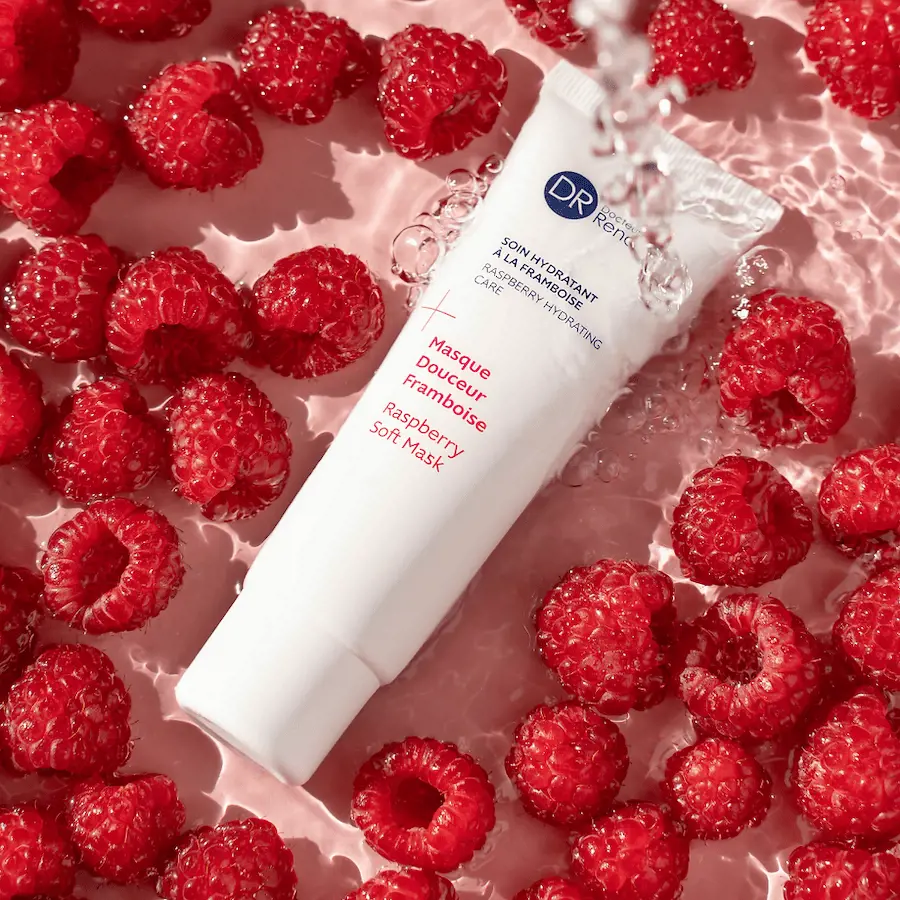Raspberries Nutritional Composition

Raspberries are low in calories and high in nutrients. Here is the approximate nutrition information for one cup (123 grams) of raspberries:
- Calories: 64
- Carbohydrates: 15 grams
- Fiber: 8 grams
- Protein: 1.5 grams
- Fat: 0.8 grams
- Vitamin C: 54% of the Daily Value (DV)
- Vitamin K: 12% of the DV
- Manganese: 41% of the DV
- Folate: 5% of the DV
- Magnesium: 7% of the DV
- Potassium: 5% of the DV
Besides these nutrients, raspberries are also rich in antioxidants, which help protect the body against damage from harmful free radicals. The fiber content in raspberries helps support digestive health and may contribute to weight management by promoting feelings of fullness.
Carbs
Raspberries are low in sugar but high in fiber. This makes them a great choice for those following a low-carb diet or managing their blood sugar levels. In a 100-gram serving of raspberries, there are approximately 12 grams of carbohydrates.
The majority of the carbohydrates in raspberries come from natural sugars, such as fructose, glucose, and sucrose. These sugars are naturally occurring and are not added sugars, making raspberries a healthier option compared to other sugary snacks. The high fiber content in raspberries also helps to regulate blood sugar levels by slowing down the absorption of sugars into the bloodstream.

Fiber
Raspberries are primarily consumed due to their fiber content. In a 1-cup serving of raspberries, you can find an impressive 8 grams of dietary fiber. This accounts for around one-third of the recommended daily intake for adults. The fiber in raspberries consists of both soluble and insoluble fiber, providing a balanced combination of health benefits.
Fiber is not digested by the body but rather passes through the digestive system largely intact. It plays a crucial role in maintaining a healthy digestive system and offers numerous health benefits.
Soluble fiber in raspberries forms a gel-like substance in the gut, which helps to slow down digestion. This can be beneficial in regulating blood sugar levels and promoting a feeling of fullness.
Vitamins and Minerals
Several vitamins and minerals like Vitamin C, K and E, along with manganese, copper, and magnesium, are also found in these fruits. These compounds are important for the proper functioning of the body.
It accounts for more than half of the recommended intake of Vitamin C, indicating its importance in a balanced diet. It also contains certain amounts of other elements like zinc, vitamin A, riboflavin and calcium.

Other Plant Compounds
In addition to the nutrients mentioned above, raspberries also contain other bioactive plant compounds that support the human metabolism. Some of these compounds are:
- Flavonoids
- Phenolic acids like ellagic acid
- Anthocyanins
- Tannins

















